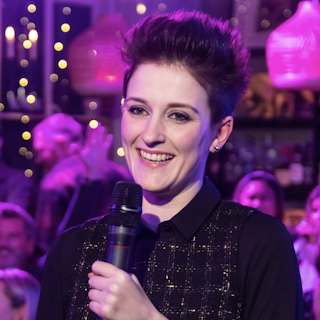Evolving a business through 2020: tips from Birds Eye, Audible, Eurotunnel, Freeview and Cazoo
How will the companies of the future set the stage for future success? It’s not just the complexities of data and technology, but also the social and political upheavals that are making a big impact on businesses.

Birdseye, Audible, Eurotunnel, Freeview, Cazoo: how to evolve a business in 2020 & beyond
However, the odds of failure are increasing. It is predicted that one out of three public companies will cease to exist in their current form over the next five years - a rate six times higher than 40 years ago.
Whether you’re a food company accommodating flexitarians, an audio entertainment product thriving of the boom in audiobooks or a railway service awaiting the impending Brexit deal, businesses are changing at a fast rate.
What will the business/brand of the future look like? We asked our judges from The Drum Marketing Awards Europe, who give a fascinating insight into the business trends in not just 2020 but also beyond.
Steve Challouma, marketing director, Birds Eye
Businesses of the future will need to ensure that they have enduring relevance and evolve their brands and value creation models in line with consumer and industry trends in order that they can continue to survive and thrive. For a traditional business such as Birds Eye, this means having the foresight to predict which changes from an external perspective that will fundamentally impinge on the brand and consumer proposition – and to ensure the right interventions are made from a strategic, operational and organisational perspective.
The changes have the potential to be far-reaching and increasingly marketers will need to be externally oriented and take a broad perspective, considering all stakeholders who are impacted by the business – ranging from how they attract the best talent to how they leverage technology in communications and innovation development. Competitive advantages will be increasingly fleeting - and the capability of a business to protect themselves from or adapt to disruption will become a core competence.
The businesses of the future will need the ability to separate out which trends are fleeting verses which are enduring and then leverage the brand propositions accordingly. For example, in Birds Eye’s case, by leading in sustainable sourcing or adapting the product portfolio to meet evolving consumption trends such as flexitarianism.
Neema Shah, head of marketing, Freeview
At first sight, this prediction looks very alarming. However, it’s worth remembering that innovations in technology over the past decade have led to a faster pace in everything that businesses, brands and consumers do.
Brands that want to survive must be ready to adapt, faster than ever before. This requires greater flexibility of budgets and resources as well as a closer eye on consumer behaviour and digital innovations. The great thing about the evolution of technology is that we have access to more data to help inform decisions. But over-reliance on data can also slow brands down. It’s important to continue using automation tools as well as making sure we’re focusing on the right data.
In order to stand out from other brands in challenging markets, brand building is also key. Immediate, data-driven tools need to go hand in hand with creating an emotional connection with a brand, which can, in turn, help build brand metrics such as consideration and salience. We know from the IPA Effectiveness studies (Binet and Field) that these metrics can drive profitability in the long term. We as marketers ignore this at our peril.
To survive in the future, brands need to take a long-term view now.
Matthew Parker, brand marketing director, Audible UK
In an era of hyper-capitalism, insatiable technology advancement and waning levels of consumer patience, it seems like a great time to be in the business of finding a market for something. But businesses no longer compete alongside competitors on their high street. That’s shouldn’t be news to anyone, but if we’re comparing the commercial world of 1980 to today then it’s worth remembering.
That said, brands of the future won’t be that different from the successful brands of the past. They’ll offer a product or service that people need. They might be competitively priced… or they may not. They may align with a greater purpose…or they may not. That “need” doesn’t always mean the product is objectively any good. Or worthy. Or even moral. As much as I’d love to say the brands of the future will only be successful if they make the world a better place, I doubt that would be true. I’d like to think of myself as a conscientious consumer, but I’m sure I’ve bought a chocolate bar at a petrol station in the last 30 days.
So perhaps what’s behind the increase in business failure has more to do with a deluge of products and services that people don’t need: a collective lowering of the bar to meet the perception of all that inflated consumer demand.
If the brands with products that people need also have good marketing, then they’ll probably do well. As will the brands with products that people need who have downright mediocre marketing. But there are no lessons to be learned in successfully marketing a crap product.
Jae Hopkins, sales and marketing director, Eurotunnel
In 2018 my Sydney-dwelling sister had more than her allocated 15 minutes of fame when she tweeted a mock-up of a bag with the words “ban the single use prime minister” on it, in a week when Australia had banned single-use carrier bags, and Malcolm Turnbull had lost his job live on TV. The meme exploded and as everyone said they wanted to buy it Gwen realised the opportunity, created a company, set up an Etsy store and started selling whilst cooking a dinner party for friends.
She sold AUD50k of bags in just over a week, by which time the first actual bag was rolling off the production line. The company she created that evening – Sans Sheriff - has gone on to sell a few more bags, but she doesn’t really need it anymore. It’s had its success.
Phrases like “the odds of failure are increasing” are scary, but the reality is that everything is changing – more people are starting businesses; businesses are easier to create than ever before, and a long life for a company may not be what’s needed or desired.
We’ve all heard that the rate of change is increasing; that things are changing more slowly now than they ever will in the future. The truth about organisations selling products or services is that they will have to be more flexible and reactive in the future if they want to stay in business. It’s not only technology and consumer desires that are changing quickly, but also how we make purchases, the type of service we expect, and our understanding of our impact on the planet (are avocados good or bad for the environment today?). Any one of these things could undo an otherwise profitable business if they didn’t react at the right rate.
We’ve seen some big names go under recently, but many of them are unsurprising when you look at their response – or lack of response - to the environment they’re operating in. We can also point at real successes of strategic transformation – Nintendo used to make playing cards, Tiffany’s stationery and Netflix used to just distribute programmes – now they win BAFTAs!
As they say, when you’re finished changing, you’re finished. And the business leaders who watch how their environment is changing and respond will be those that create success. Maybe Sans Sheriff will just fade away now. Or maybe it’s a handy company waiting to spring into action the next time my sister has a smart idea whilst peeling onions!
Lucas Bergmans, brand director, Cazoo
A lot has changed in 40 years. Back in 1980, I was watching Top of the Pops with a full head of lustrous platinum blonde hair. The list of things that are no longer with us includes an ever-growing number of businesses and brands that used to be household names: Blockbuster, Kodak, Nokia…
For businesses to thrive and build brands that last, they must focus on three key things: obsessing about the customer, getting ahead of customer and technology trends, and ability to disrupt and transform yourself.
Businesses need to relentlessly obsess about their customers, listen to their needs and respond. Service needs to be consistently brilliant, giving support when and where needed and fixing problems quickly and effectively. The price for failure today is not only fewer repeat customers but very public negative feedback.
The successful business of today has a firm eye on the future a year or two from now. This will inevitably include some failures (remember Kindle Fire Phone) but it will also deliver lessons that can be built on (Alexa’s voice recognition technology came from the Fire)
Finally, businesses need to be able to disrupt and transform themselves. Blockbusters could surely have become Netflix rather than being replaced by it.
In some ways, things haven’t changed at all. Customers have high expectations and many competitors to choose from. The difference today is that the price for complacency is that much greater and its impact that much quicker.
The Drum Marketing Awards Europe 2020 is now open to entries. The deadline is fast approaching, make sure you enter your submissions by Thursday 30 January.
Sponsors of the awards are the Financial Times and Mondo25.

